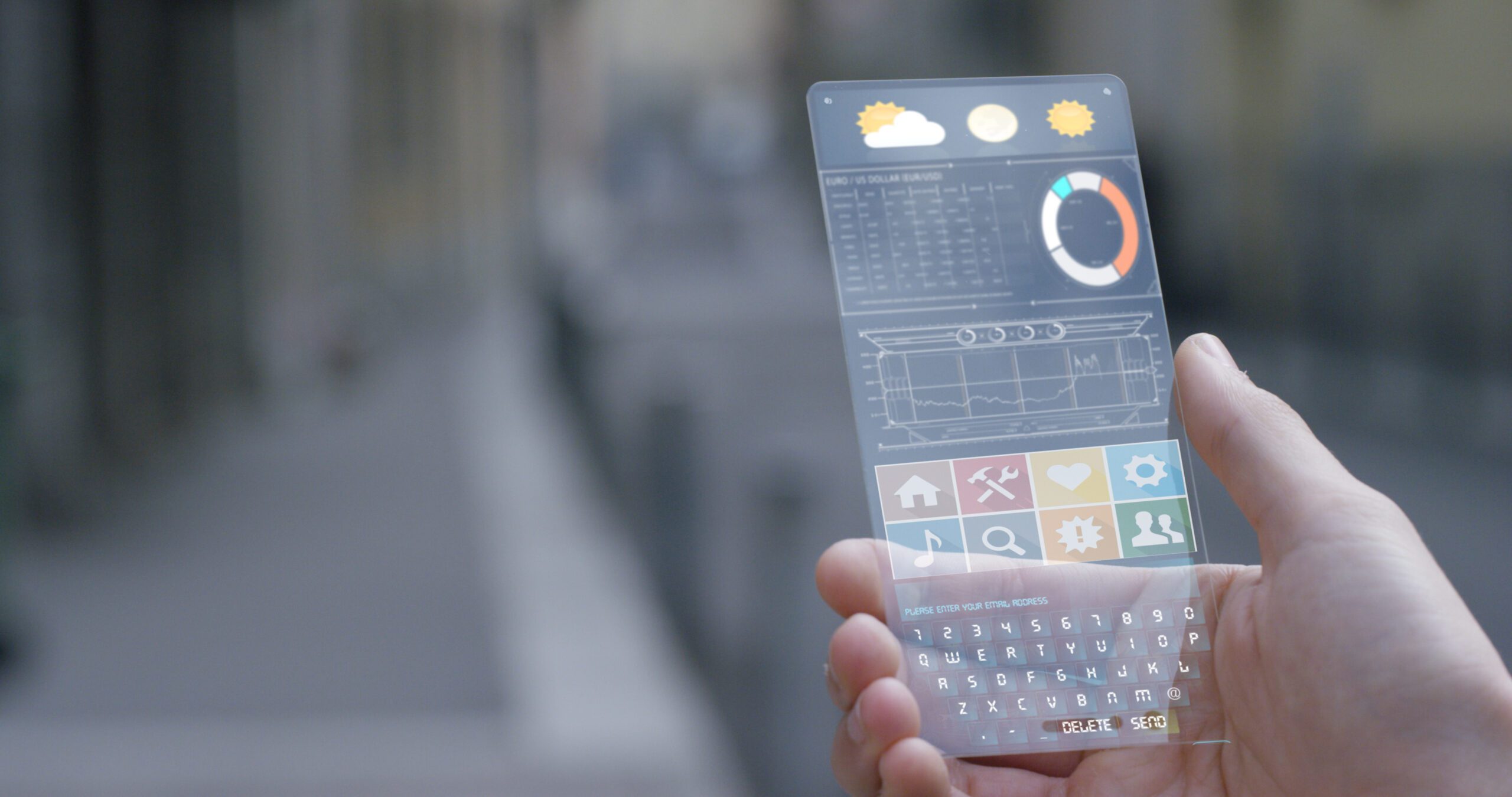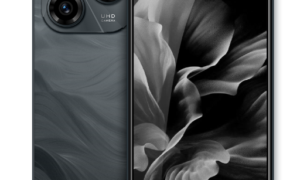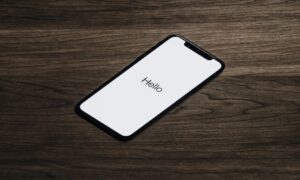For decades, the smartphone has been our constant companion — glowing in our hands, whispering directions, recording memories, connecting us to everything and everyone.
But here’s a wild prediction for the 2030s: the future of smartphones might mean no phones at all.
If that sounds impossible, remember — once, people said the same thing about life without keyboards, CDs, or cables.
And yet, here we are, carrying the sum of human knowledge in a glass slab thinner than a wallet.
Now, that slab is preparing to disappear.
From Pocket to Presence
In 2025, technology isn’t shrinking anymore — it’s dissolving.
It’s becoming invisible, ambient, and seamlessly integrated into our environment.
We’re moving from devices we carry, to experiences that carry us.
The question is no longer, “What can my phone do?”
It’s “Why do I need a phone at all?”
Companies like Meta, Apple, and Samsung are racing to turn the smartphone experience into something you wear, see through, or even think about — literally.
The next generation of interfaces won’t live in your pocket. They’ll live around you, inside your home, and possibly inside your body.
And if you think that’s science fiction, take a look at how commerce, AI, and wearable ecosystems are already fusing into one seamless experience:
👉 https://as2.ae/mobile-accessories/
The Era of the “Invisible Device”
Right now, several prototypes from leading tech labs point toward a future where the smartphone disappears — replaced by ambient computing.
That means your environment becomes the interface.
Imagine this:
- You walk into your living room, and the walls project your messages automatically.
- You blink twice to answer a call.
- You think of a song, and it starts playing — no screen, no touch, no tap.
This future isn’t about smaller screens.
It’s about no screens.
The Collapse of the Rectangle
Since 2007, we’ve lived inside a rectangle — scrolling, tapping, typing, swiping.
It’s addictive, efficient, and deeply limiting.
The future will rip that rectangle apart.
Augmented Reality (AR) lenses and neural interfaces are already in early consumer testing.
Apple’s Vision Pro is just the opening act — a heavy, expensive prototype paving the way for featherlight AR glasses that could replace the smartphone completely by 2030.
By that point, you won’t “open apps.”
You’ll think commands.
You won’t “search” for information.
Information will find you.
And when that happens, the line between technology and humanity will blur so completely, we’ll stop asking “where” our devices are — because they’ll be everywhere.
The Human Upgrade
The phrase “smartphone addiction” might not even exist ten years from now.
Not because we’ll use our phones less — but because the phone will become part of us.
Brain-computer interfaces are already mapping signals that translate thought into action.
Elon Musk’s Neuralink recently demonstrated typing purely through brain activity, while smaller startups in Dubai and Singapore are testing wearable neural patches that decode emotional states.
In other words, the device will know you before you unlock it — because you are the device.
The Death of Touchscreens
The touchscreen was the gateway drug.
We believed we controlled our devices with our fingers — but in truth, they’ve always been training us.
Every scroll, gesture, and swipe taught the algorithms what pleases us, annoys us, and distracts us.
Now, those same algorithms are learning how to respond without waiting for input.
In 2025, predictive behavior AI can already anticipate what message you’re about to send before you finish typing.
By 2030, your neural interface might send it before you decide to.
That’s efficiency — or enslavement — depending on who you ask.
Dubai: The Living Prototype
Dubai has quietly become the testing ground for invisible tech.
The city’s Smart Nation framework includes AR navigation systems, AI customer service kiosks, and experimental gesture-controlled commerce pods — mini shopping hubs where you simply point, glance, or nod to complete a transaction.
Imagine walking into a store, glancing at a pair of earbuds, and instantly seeing your personalized data overlay: price, brand history, environmental footprint, and even the mood that product aims to trigger.
Payment? Automatic.
Receipt? Stored in your neural cloud.
Phone? What phone?
That’s the new luxury — frictionless interaction.
The End of Ownership
In this coming world, you might not even own devices.
You’ll rent access to ecosystems — digital layers that follow you across cities, homes, and cars.
Hardware becomes irrelevant; identity becomes the key.
Your personal AI, synced to your biometrics, will log you into everything automatically — from your home door to your virtual workspace.
Think of it as a phone without edges, a mind without pockets.
The Paradox of Connection
But here’s the twist: as devices fade, dependency deepens.
When tech becomes invisible, it becomes inescapable.
When your screen disappears, how do you disconnect?
When your home listens, your walls respond, your chair vibrates with notifications — what does “privacy” even mean?
We used to worry about losing our phones.
Now, the fear will be losing ourselves inside them.
The AI Companion Era
In the post-smartphone age, every user will have a digital twin — an AI companion trained on their behaviors, language, and emotional patterns.
That twin will answer emails, order food, predict moods, and even maintain relationships on your behalf.
It’ll talk to other AIs across networks, coordinating your digital presence 24/7.
Imagine a future where your friend’s “voice message” isn’t from them — but from their personal AI, talking to yours, while both of you are asleep.
Creepy? Absolutely.
Convenient? Completely.
Inevitable? Almost certainly.
The New Luxury: Disconnection
As technology seeps deeper into our consciousness, the ultimate luxury in 2035 won’t be faster devices — it’ll be the ability to disconnect.
We’ll pay extra for silence.
We’ll buy retreats that block signals instead of boosting them.
And “offline” will become a premium experience, not a punishment.
The same way we once paid for Wi-Fi, we’ll soon pay for freedom from it.
The Inevitable Question
If the future of smartphones is no phones at all, what happens to us — the generation that grew up holding the world in our palms?
Maybe the next revolution isn’t about new devices, but about rediscovering what it means to be human without them.
Technology won’t vanish; it’ll dissolve into our breath, our skin, our routines.
The real challenge won’t be building smarter tools — it’ll be remembering how to feel, think, and love without them.
Because when the phone finally disappears, we’ll realize something profound:
The world was never inside the screen.
It was always inside us.



































